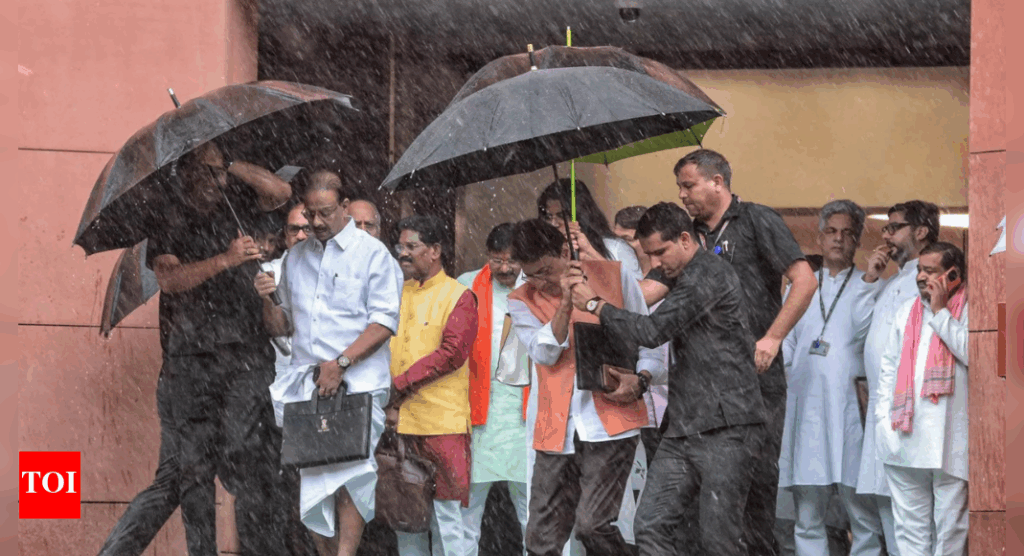
The monsoon session of the Indian Parliament concluded on Thursday, mirroring its tumultuous start on July 21, as opposition MPs filled the well of the house, leading to adjournments and a near-total washout of proceedings. The session was marred by controversies surrounding the Bihar electoral rolls review and the Pahalgam terror attack, with the opposition INDIA bloc taking an aggressive stance.
As Lok Sabha Speaker Om Birla attempted to conduct the final day’s proceedings, he faced resistance from opposition members demanding a discussion on the Special Investigation Report (SIR). His appeals were countered with sharp retorts, underscoring the tensions that had characterized the session.
Disruptions and Protests Define the Session
The session was marked by daily protests, with opposition MPs using placards and engaging in loud sloganeering. These demonstrations were often preceded by large gatherings at the Parliament entrance each morning. Speaker Birla expressed his frustration, attributing the session’s low productivity to “organized disruptions.”
Out of 120 hours allotted for proceedings, the Lok Sabha functioned for approximately 30% of its scheduled time, while the Rajya Sabha managed around 39%.
One of the few orderly discussions was on the Pahalgam attack, known as Operation Sindoor, which occupied both houses for two days each over three days. However, the government’s refusal to discuss the Bihar SIR remained a flashpoint, exacerbating tensions.
Government and Opposition at Loggerheads
The government’s surprise introduction of three bills proposing the automatic dismissal of chief ministers and ministers jailed for 30 days further fueled the discord. This move led to near scuffles in the Lok Sabha, notably in the presence of Home Minister Amit Shah on the penultimate day of the session.
The washout is a rare occurrence under the Modi government, attributed to two main factors: the increased strength of Congress and the opposition in the 18th Lok Sabha, and a unified anti-BJP front, particularly with the Trinamool Congress (TMC) aligning with the opposition strategy.
The last comparable washout occurred during the 2023 winter session, when debates over new criminal laws to replace the CrPC and IPC led to mass suspensions from both Houses.
Reactions and Blame Game
Congress leader Manickam Tagore criticized the BJP for the deadlock, stating, “More than 239 MPs demanded a full discussion on ‘vote chori’ and SIR. What did they get? Zero minutes of debate.” In contrast, BJP ally and RLD MP Rajkumar Sangwan condemned the opposition’s behavior as “unfortunate,” accusing them of preventing the House from functioning properly.
Meanwhile, the opposition’s unity is expected to play a significant role in the upcoming vice-presidential election, with the TMC’s support proving crucial in maintaining a cohesive strategy against the ruling party.
Looking Ahead: Implications and Future Sessions
The conclusion of this monsoon session leaves several critical issues unresolved, setting the stage for potentially contentious debates in future sessions. The government’s legislative agenda, particularly concerning the proposed bills on ministerial dismissals, is likely to remain a point of contention.
As the political landscape continues to evolve, the ability of both the government and the opposition to navigate these challenges will be crucial. The upcoming sessions will test the resilience of parliamentary procedures and the willingness of all parties to engage in constructive dialogue.
The monsoon session’s outcome underscores the need for effective communication and compromise within the Indian Parliament to ensure the smooth functioning of democracy.






